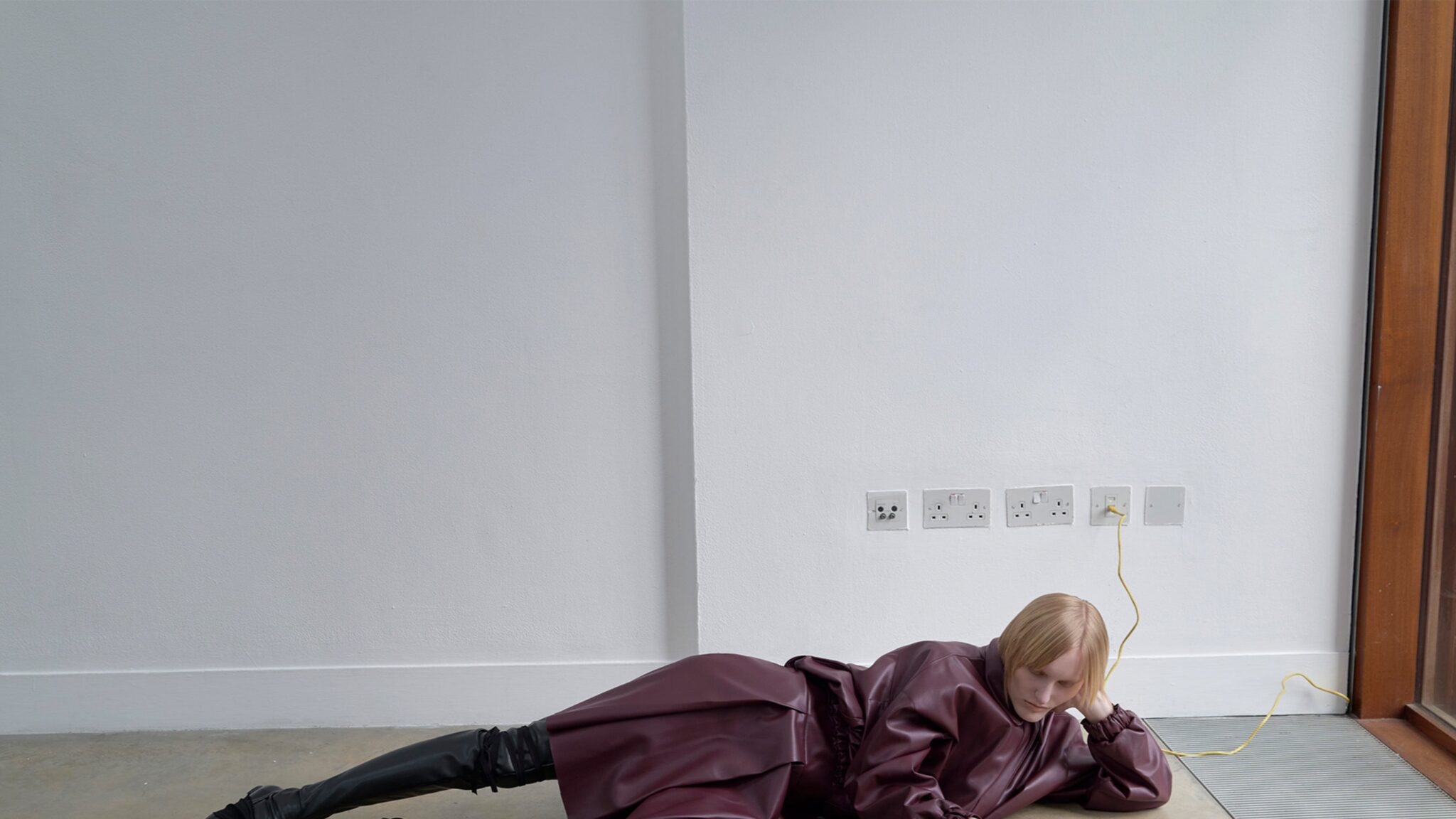Like many designers working today, Cynthia Merhej is grappling with big questions ahead of the presentation of her fall offering. What does it mean to show a fashion collection against a backdrop of war? Where is the line between personal opinion and brand statement? Having spent the past four months in Lebanon, where her family is based, and where her mother produces Renaissance clothing in her Beirut studio, tensions in the Middle East and the situation in Gaza have weighed heavily. “All I could think about was the absurdity, the performative nature of violence,” she said. “I don’t like literal references, but I started looking at images of clowns.”
Just as clowns mine sadness for comedic potential, Merhej absorbed their turn-of-the-century wardrobe of shrunken blazers with blossoming shoulders, exaggerated trousers and collars, and mixed them with shredded sequins, faux leather and her signature experimental tulle to create a a suggestive play with proportions and shape. “I wanted to tear apart frivolous elements like ruffles and sequins so that they fell into shreds,” she said, holding up a pair of tulle hot pants appliquéd with raw toile canvas ribbons.
It’s easy to see why stylists love her clothes: the looks are completely layered and have a theatrical quality that makes an instant impression. But they also work in isolation and for the everyday. A khaki shirt with adjustable bows that gather in the fabric and create pleats at the hips was an example of Merhej’s simple but special approach. Her designs are something you reach for on Saturday nights when you need to look like you’ve made an effort, but not too much effort.
For fall, she experimented for the first time with Japanese faux leather, creating a seductively feminine take on a bomber jacket with a pleated tulip hem. Merhej also debuted knitwear, a collaboration with Bielo, a second-generation Spanish supplier that uses Japanese knitting techniques. Pencil skirts came with gathered hips, while cashmere cardigans had diagonal stripes down the front to offset any bourgeois leanings. And she moved on to shoes, creating patent ballet flats with raw ribbons and boots for the first time.
The changes Merhej made to the company last year, scaling back business and focusing on maintaining key retail relationships, have paid off. This collection felt like a step forward, with subtle details that added whimsy and charm. Despite the news cycle, Merhej also seems happier. “It feels much better knowing that your clothes are going somewhere where they will be well displayed, well received and where they will receive attention and care,” she said. “The human element is very important to me. I prefer to stay small and stable.”





